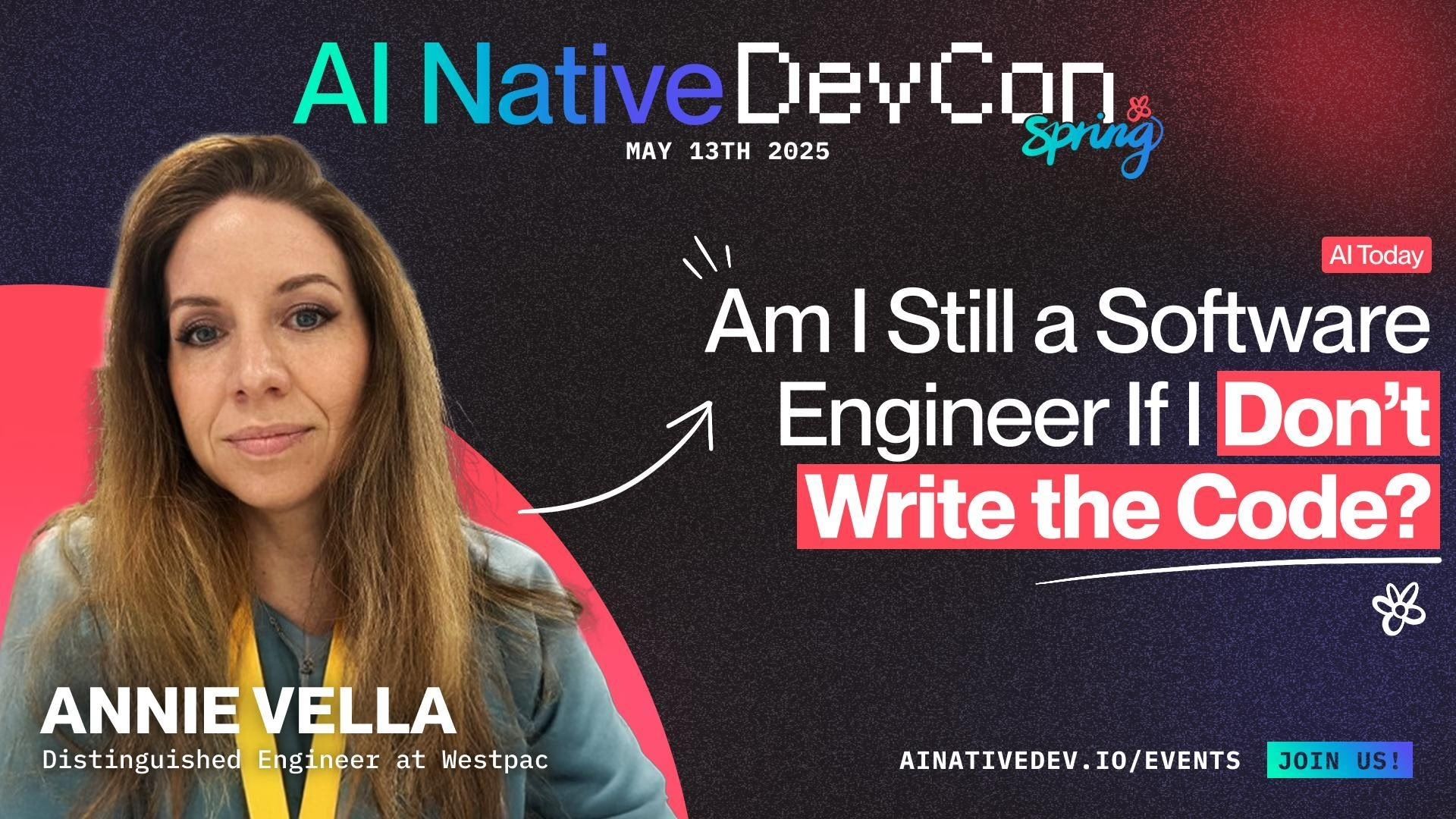

Annie Vella
4 min read13 May 2025
Distinguished Engineer, Westpac New Zealand
In her talk, Annie Vella invites us to reflect on our roles as software engineers in an era increasingly dominated by AI. Her insights remind us that while AI tools may alter the way we work, they also provide an opportunity to redefine and expand our roles, focusing on creativity, problem-solving, and system design. As the field continues to evolve, embracing these changes will be crucial in maintaining the essence of our craft.
Annie Vella, a distinguished engineer at Westpac New Zealand, shared an insightful exploration into the changing landscape of software engineering in her talk, "Am I Still a Software Engineer If I Don’t Write the Code?" As the software industry's reliance on generative AI grows, Vella challenges us to reconsider the traditional roles within the field. Her reflections are rooted in both personal experience and broader industry trends, offering a comprehensive view of how AI tools are reshaping the identity and responsibilities of software engineers.
Vella began by recounting her passion for programming, sparked at the age of six with a Commodore 64. She illustrated how her transition from writing code to engineering management instigated an identity crisis—one that is now magnified by AI's rise. As she noted, "We gave away the upstream and the downstream and we've held on to the part that others saw as uniquely ours, writing the code." However, with AI tools like Copilot automating coding tasks, the question arises: What remains uniquely human in software engineering?
Vella drew attention to the predictions by industry leaders like Anthropic’s CEO and Mark Zuckerberg, who foresee a future where AI generates the majority of code. This shift prompts a reevaluation of a software engineer's role. Her research, including a survey of over 160 engineers, highlights AI's benefits: increased productivity, enhanced cognitive support, and the facilitation of problem-solving. However, she also warned of potential drawbacks, such as overreliance on AI and the erosion of essential coding skills.
Drawing on frameworks like the Dreyfus model of skill acquisition, Vella emphasized the importance of developing skills beyond coding. She argued that while AI can assist in many tasks, it cannot replace the need for systems thinking, judgment, and creativity. "We risk our skills eroding, and we might end up becoming operators of output rather than engineers of systems," she cautioned. She advocated for a broader skill set, encompassing requirements gathering, system design, and debugging.
Despite the challenges presented by AI, Vella remains optimistic about the future of software engineering. She encouraged engineers to adapt by cultivating "calibrated trust" in AI tools—knowing when to rely on them and when to trust one's expertise. Vella sees a future where software engineers become the next generation of system designers, solving problems and building systems in collaboration with AI. "The tools will continue to change, but the essence of our craft, solving, building, and thinking, that’s ours to carry forward," she concluded.
Distinguished Engineer, Westpac New Zealand
Westpac NZ Distinguished Engineer, 20+ years experience, researching AI's impact on developer workflows

Stay connected, share your thoughts, and be part of the community.